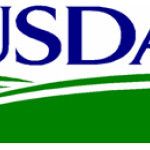- Branche: Government
- Number of terms: 41534
- Number of blossaries: 0
- Company Profile:
A technique for insuring disease (and pest) free plants by isolating them during a period while performing tests for latent diseases. Often used when importing new cultivars.
Industry:Agriculture
As proposed by the Environmental Protection Agency (November 23, 1994), plant-pesticides are all substances responsible for pest resistance in plants, as well as the genes needed for production of these substances. EPA has further proposed that plant-pesticide traits introduced into plants using recombinant DNA techniques should be registered under legal requirements of FIFRA and FFDCA. Exempt from tolerance requirements would be those defense substances and genes evolved naturally or transferred to the plant by traditional plant breeding methods.
Industry:Agriculture
A chemical that affects the physiological behavior of plants, for example through accelerating or retarding the rate of growth or maturation of produce. Typically the definition of plant regulator excludes nutrients. Plant regulators must be registered as pesticides under the Federal Insecticide, Fungicide, and Rodenticide Act.
Industry:Agriculture
from the Clean Water Act,a source of pollution from "any discernable, confined and discrete conveyance, including but not limited to any pipe, ditch, channel, tunnel, conduit, well, discrete fissure, container, rolling stock, concentrated animal feeding operation, or vessel or other floating craft, from which pollutants are or may be discharged." Irrigation return flows and agricultural storm water discharges are specifically exempted from the definition. Point sources of pollution are amenable to regulation through specific effluent limitations which require monitoring and treatment of the waste stream. The wastes coming out of the end of a pipe at a factory are an example of point source.
Industry:Agriculture
The constitutional power which authorized governments to protect the health, safety and welfare of the public. Adoption of environmental protections laws are a use of the police power.
Industry:Agriculture
Alteration of the environment, as through the introduction of hazardous or detrimental substances, heat, or noise whose nature, location, or quantity produces adverse health or environmental effects. Under Section 502 of the Clean Water Act, for example, pollution means the man-made or man-induced alteration of the physical, biological, chemical, and radiological integrity of water.
Industry:Agriculture
Refers to activities in the food and fiber sector that occur after agricultural products are sold from, or leave, the farm or ranch. In total, about 75% of the retail cost of the market basket of foods is added in postharvest activities.
Industry:Agriculture
As used in the meat and poultry inspection program, the phrase refers to the inspection that Food Safety Inspection Service inspectors are required to conduct of all animal carcasses immediately after they are killed.
Industry:Agriculture
Antigens on surfaces of cells, including infectious or foreign cells or viruses. They are usually protein-containing groups on cell membranes or walls.
Industry:Agriculture
